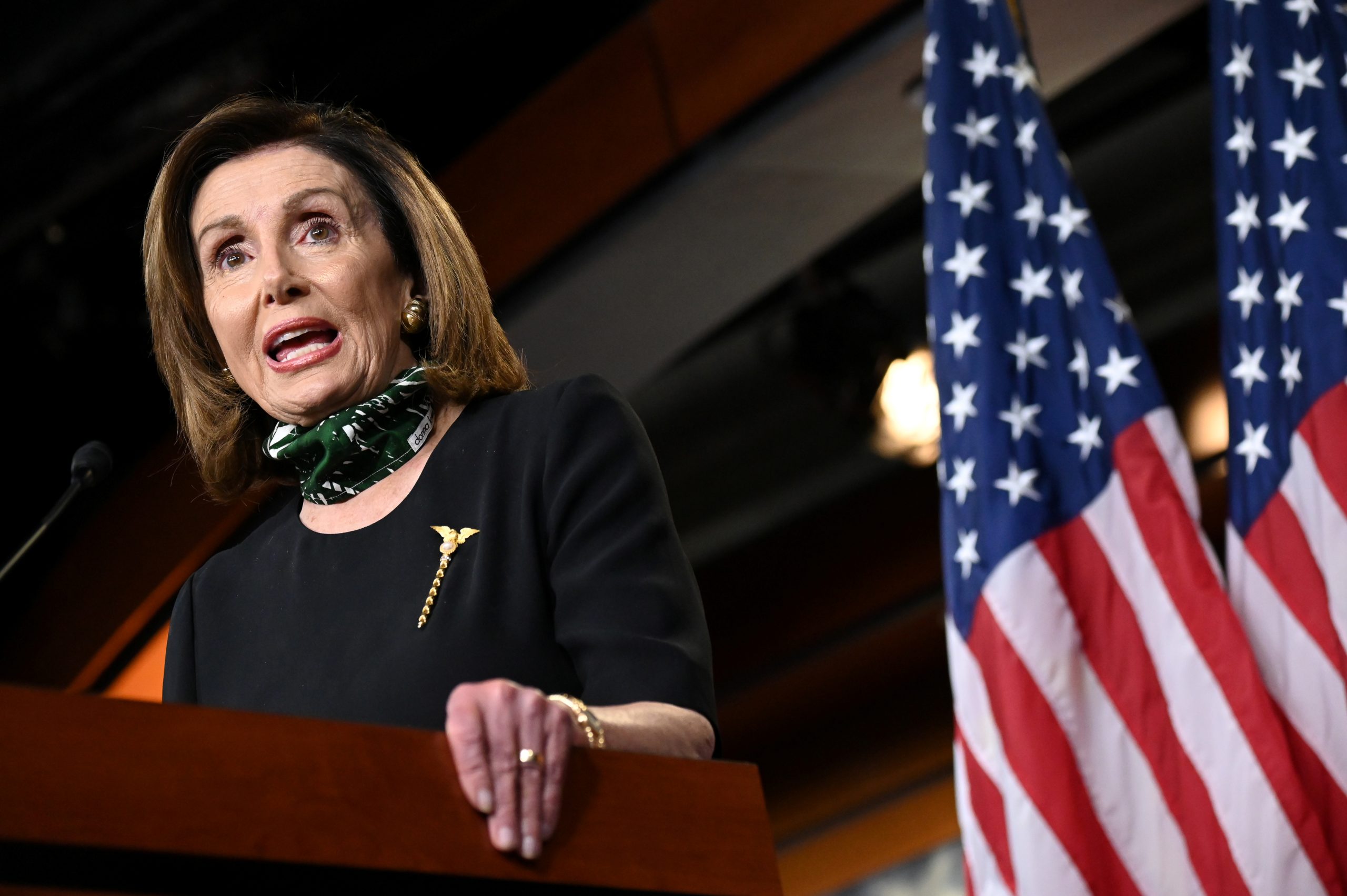House Speaker Nancy Pelosi (D-Calif) is formally authorizing a 45-day period that will allow members of the House to vote by proxy amid the coronavirus pandemic.
The Democratic lawmaker penned a letter on Wednesday to her colleagues to confirm that she is “hereby designating a ‘covered period’ pursuant to section 1(a) of House Resolution 965.”
Pelosi also attached the notification from Sergeant-at-Arms Paul Irving, reiterating the “ongoing public health emergency due to a novel coronavirus.”
Irving’s notification allows for Pelosi to invoke the historic rule. According to CBS News, the voting period starts on Wednesday and will last for the next 45 days. After that period, the ruling can be renewed, if needed.
During the “covered period,” committee members can also attend meetings to conduct proceedings remotely.
Pelosi’s decision has been criticized by House Republicans who insist Congress members should return to Washington, D.C. Many have also opted to continue meeting in-person while practicing social distancing guidelines.
Last week, those who attended stood in one room to prove social distancing could be achieved. Now, members just have the option to do both.
However, Rep. Francis Rooney (R-Fla.) is actually in favor of the ruling. Rooney, who will soon be retiring, is encouraging Congress to exhaust all available options for conducting business amid the pandemic.
“[Congress] should utilize all options for conducting business. Proxy/remote voting allows for distancing/following of proper health procedures,” Rooney tweeted on Monday. “We have important work to do over the coming months [and] it cannot be delayed; however, it isn’t necessary to put people at risk in the process.”
Cong. should utilize all options for conducting business. Proxy/remote voting allows for distancing/following of proper health procedures. We have important work to do over the coming months & it cannot be delayed; however, it isn’t necessary to put people at risk in the process
— Francis Rooney (@RepRooney) May 18, 2020
Next Wednesday and Thursday, the House is scheduled to be in session to vote on legislation for the extension of government surveillance powers. Possibilities for additional bills to address the coronavirus pandemic will also be discussed at that time.

























 Continue with Google
Continue with Google